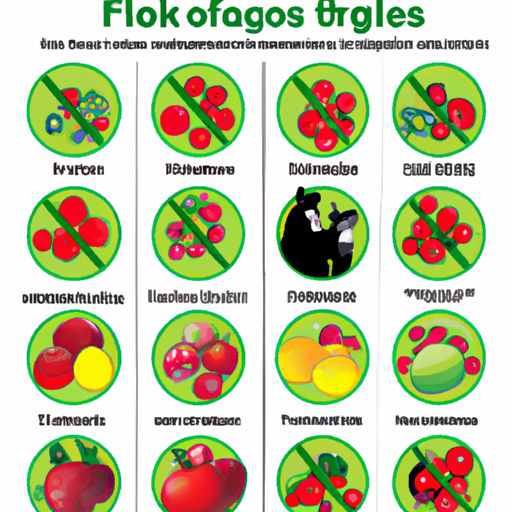As a caregiver for your pup, it’s important to know not just what they can eat, but also what they can’t. While fruits are a great source of vitamins and fiber for us humans, some can be harmful, even deadly, to our furry friends. Let’s dive into some of the fruits that should never make it into your dog’s bowl.
1. Grapes and Raisins
Grapes and their dried counterparts, raisins, are extremely toxic to dogs. Even a small amount can lead to severe kidney damage or even death.
- Why are they dangerous? The exact substance that makes grapes and raisins toxic to dogs is unknown. However, their effects are well-documented.
- Symptoms of ingestion: Vomiting, diarrhea, lethargy, lack of appetite, abdominal pain, kidney failure.
- What to do if your dog ingests them: Contact your vet immediately.
2. Cherries
Cherries are another no-go for dogs. While the fruit itself isn’t toxic, the stem, leaves, and pits contain cyanide, which is poisonous.
- Why are they dangerous? Cyanide disrupts cellular oxygen transport, which can lead to your dog’s blood cells being starved of oxygen.
- Symptoms of ingestion: Dilated pupils, difficulty breathing, red gums, shock.
- What to do if your dog ingests them: Seek veterinary assistance promptly.
3. Citrus Fruits
Citrus fruits like oranges, lemons, limes, and grapefruits should be off your dog’s menu. While the flesh itself isn’t harmful in small quantities, the peels, seeds, and stems can cause gastrointestinal upset.
- Why are they dangerous? They contain varying levels of citric acid, which can cause upset stomachs in dogs.
- Symptoms of ingestion: Diarrhea, vomiting, sensitivity to light.
- What to do if your dog ingests them: Monitor your dog for any discomfort or unusual behavior and contact your vet if symptoms persist.
4. Avocados
Avocados contain a toxin called persin, more concentrated in the pit and skin but present in the fruit itself.
- Why are they dangerous? Persin can cause vomiting and diarrhea in dogs.
- Symptoms of ingestion: Vomiting, diarrhea, lack of stool production.
- What to do if your dog ingests them: Contact your vet if symptoms are severe or persist for more than a few hours.
5. Green Tomatoes
Ripe tomatoes are generally safe for dogs, but green tomatoes or the plant itself can be harmful.
- Why are they dangerous? They contain solanine, a substance harmful to dogs.
- Symptoms of ingestion: Loss of appetite, drooling, stomach upset, slow heart rate, dilated pupils.
- What to do if your dog ingests them: If your dog consumes a large quantity, contact your vet immediately.
| Fruit | Toxic Parts | Symptoms | What to do? |
|---|---|---|---|
| Grapes | Whole fruit | Kidney failure | Contact vet immediately |
| Cherries | Stem, leaves, pit | Difficulty breathing | Seek vet promptly |
| Citrus fruits | Peels, seeds, stem | Upset stomach | Monitor, contact vet if needed |
| Avocados | Whole fruit, especially pit and skin | Vomiting, diarrhea | Contact vet if severe |
| Green Tomatoes | Whole fruit, plant | Slow heart rate, dilated pupils | Contact vet if large quantity consumed |
FAQ
Q: Can my dog eat any fruit?
A: Many fruits are safe for dogs, like apples, bananas, and blueberries. Always remove seeds and pits, and feed in moderation.
Q: What should I do if my dog eats a toxic fruit?
A: Contact your vet immediately. If possible, note the amount consumed and any symptoms.
Q: Can I give my dog fruit treats?
A: Yes, fruit can be a healthy treat option for dogs. Just be sure to avoid the fruits listed in this article.
Q: Are fruits a necessary part of a dog’s diet?
A: While fruits can provide beneficial nutrients, dogs can get all the nutrition they need from a balanced dog food.
Remember, when it comes to your dog’s diet, it’s always better to be safe than sorry. When in doubt, consult with your vet.



